November 7, 2022
Period poverty is impacting people in the Alberta Capital Region, but United Way’s Period Promise is here to help.
Menstruation products are a necessity, but for some vulnerable people they can be hard to come by.
Almost one quarter of people who menstruate in Canada say they have struggled to afford menstrual products for themselves or their children. And when people don’t have menstrual products, they miss school, work, or other opportunities to participate in their community.
United Way is here to help, but we can’t do it alone.
United Way’s Period Promise initiative is a multi-faceted approach to address period poverty in our communities. By working with governments, businesses, schools, and other organizations, we can move the dial and provide access to period products in a dignified way, while also busting stigma associated with menstruation.
The Period Promise initiative is providing free period products in select schools across the province; collecting and distributing period products to agency partners in the Edmonton area; and working with corporate partners to educate and empower them to erase period poverty in their own workplaces.
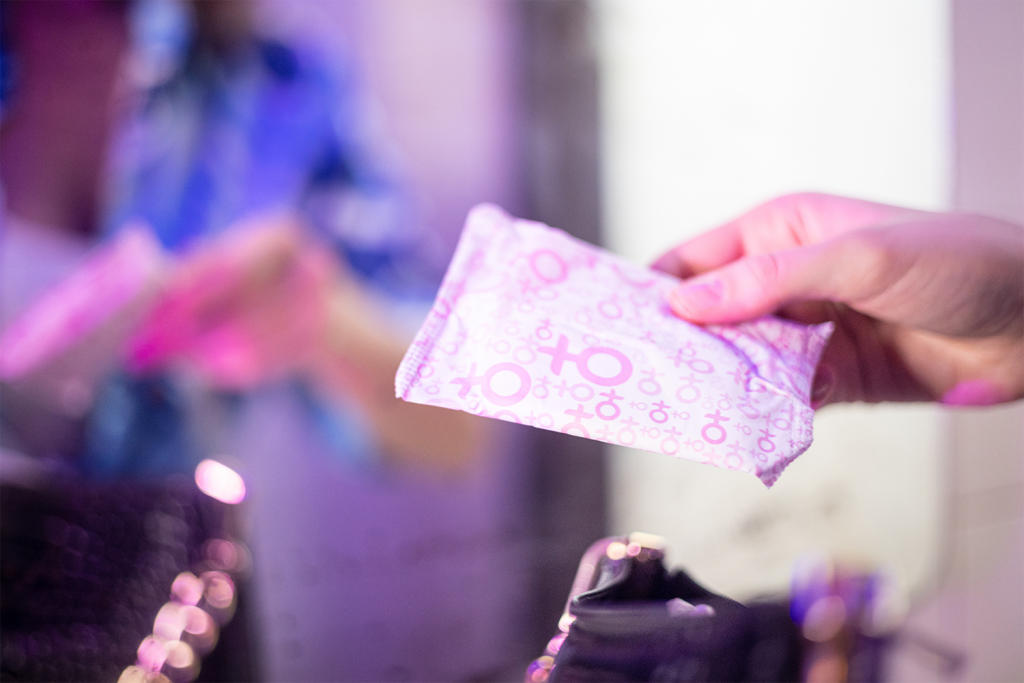
Menstruation is a normal and healthy process that people with internal reproductive organs experience for about a week, every month, for an average of 40 years.
MYTH: Period products aren’t that expensive.
FACT: The average person will have 456 periods in their life and spend about $6,360 on period products alone. This doesn’t factor in costs such as laundry, underwear, pain medication, or other supplies. In Canada, period products were subject to GST until 2015.
Period poverty is a complex issue with multiple factors. These include:
This is just one example of the unique barriers faced by women and gender-diverse people that others may not even consider.

School and adolescence are hard enough as it is without worrying about affording pads or tampons or having to skip class because you have your period.
When students don’t have access to menstrual products, they may experience anxiety, shame, and embarrassment – which may result in them missing school, extracurricular activities, and social opportunities. We also know that graduating is a key milestone in breaking the cycle of intergenerational poverty, so missing class due to menstruation is another barrier to student success.
MYTH: It’s not polite to talk about periods.
FACT: Stigma is a significant contributing factor to period poverty. Periods are nothing to be ashamed of – they are a natural, biological process. But too many people report being shamed, bullied, or isolated because of their periods. By being upfront about the reality of periods and period poverty, we can show people that periods aren’t scary or shameful, they’re just a fact of life.
Period Promise is devoted to making fundamental change and bringing menstrual equity to our schools.
In partnership with the Government of Alberta, and with product sponsorship from Proctor & Gamble, United Ways across the province are joining together for a one-year pilot project to provide free menstrual products in 50 Alberta schools.
Not only will this partnership make period products accessible for those who need them and bring peace of mind to students and families, it will also help address the stigma around menstruation. Periods are a fact of life, and the more we normalize these conversations, the easier things will be for future generations.
The cost of menstrual products is just one factor in how period poverty can impact vulnerable people.
If someone can’t afford products, they may make their own out of whatever is handy: rags, toilet paper, towels, or clothing. But often these DIY solutions don’t work as well — and some could even be harmful.
MYTH: Period poverty is just an inconvenience.
FACT: While periods aren’t dirty or unhygienic, there are health risks associated with period poverty or menstrual misinformation. Unfortunately, this is a reality for people in vulnerable situations without regular access to washrooms, who experience stigma, or who can’t afford products. There is an added layer of complexity for trans men and non-binary people who menstruate and may have a hard time accessing menstrual products safely.
Even if someone can afford tampons, pads, period underwear, or menstrual cups, all these products must be changed or cleaned regularly. Limited access to products and facilities may lead people to delay changing or cleaning their products. Not only is this uncomfortable, but it can also pose health risks; as such, access to soap and water, washrooms, and laundry is a crucial element of providing menstrual equity in a safe and dignified way.
By supporting a Period Promise fundraiser or product drive, you’ll help United Way provide period products to our front-line agency partners, to be distributed directly to local people in need. This helps them be able to menstruate with dignity and safety.
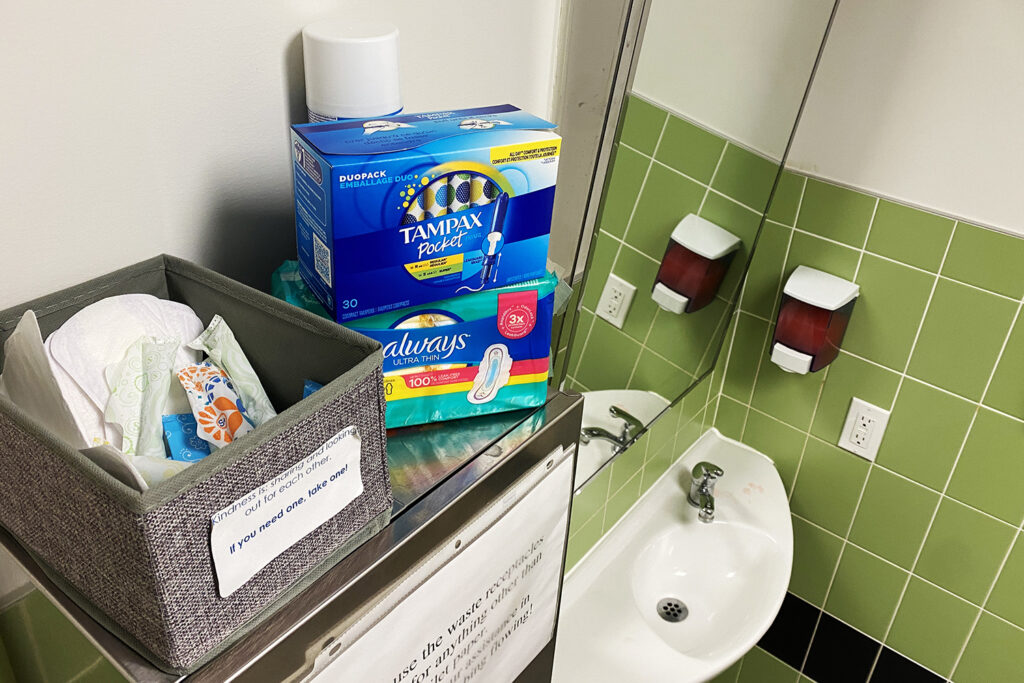
Barriers to basic needs like menstrual products can limit a person’s ability to work and provide for themselves. It also impacts their dignity, health, and wellbeing.
MYTH: Menstruation has no impact on someone’s ability to work.
FACT: Menstruation is one of the top two reasons that people who have periods miss work in Canada.
That’s why United Way’s Period Promise is devoted to making fundamental change to address period poverty in our communities, but we can’t do it alone. That is why we are encouraging our corporate and labour partners to move the dial on menstrual equality, starting in their own workplace.
Starting in fall 2022, local organizations can sign onto our Period Promise Policy Agreement. Workplaces will commit to providing free menstrual products in a dignified way in their washrooms. On average, it costs an organization less than $1.00 a month per worker who menstruates to provide free, on-site product.
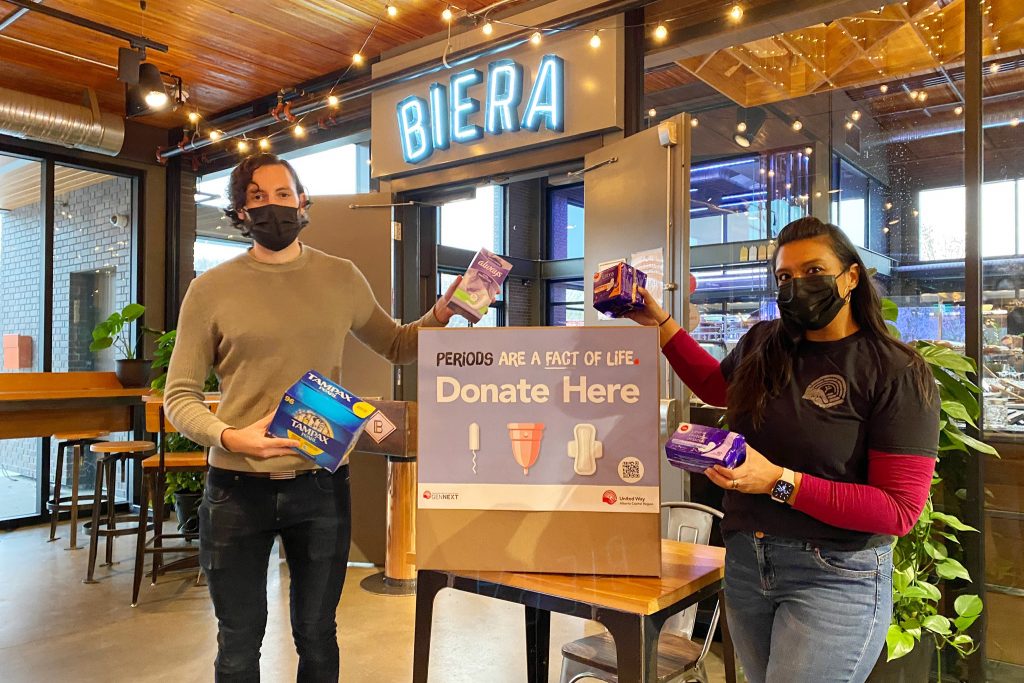
Period products are as essential to daily hygiene routines as toilet paper, soap, tissues, and water. Yet they are still hard to come by, even in public bathrooms. But change is coming.
The City of Edmonton has added free period products to women’s and inclusive washrooms at City Hall, recreation and leisure centres, arenas, and some transit centres. Meanwhile, Edmonton Catholic School Division (ECSD) will fully equip all washrooms with free period products by the fall of 2022. Edmonton Public School Division is also committed to providing free products in washrooms.
Period poverty is the problem. Menstrual equity—easy, affordable, and timely access to period products, regardless of gender or income—is the solution.
But we can’t do it alone.
By uniting with our neighbours, local businesses, schools, and community organizations, we can support people in need by making sure they can access basic needs, including period products.
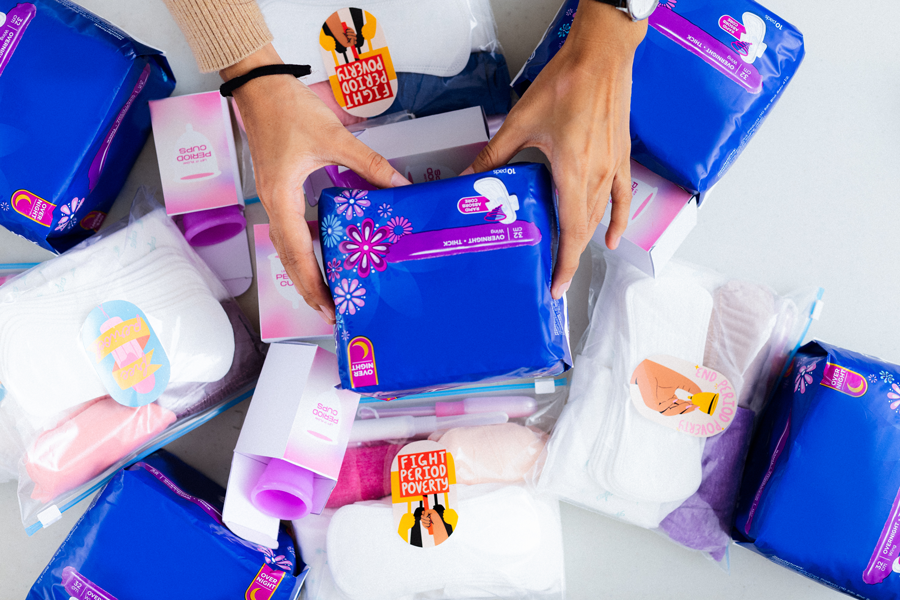
Amii aims to make the tech industry more inclusive by busting stigma and improving access to period products
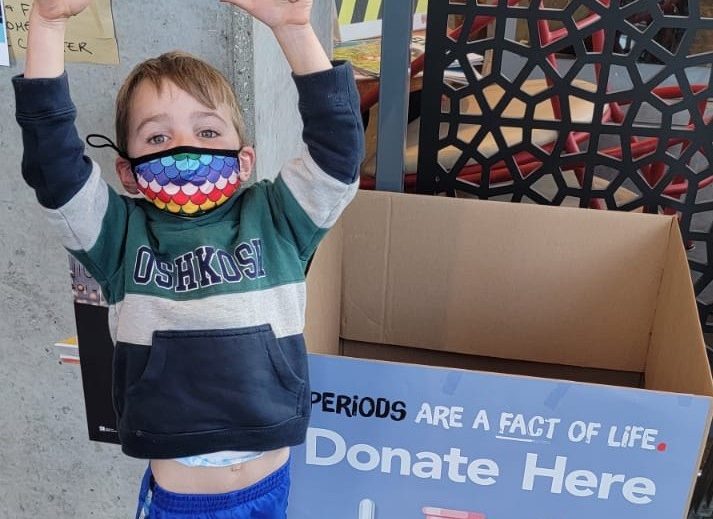
Period poverty occurs when someone lacks the menstrual products they need, and it’s a more common issue in our community than you probably think.